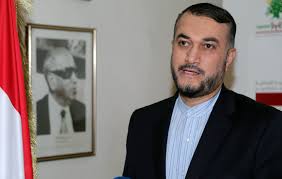Iran Rejects Nuclear Negotiations Amid Ongoing Israeli Strikes
On June 21, Iran officially declared it would not return to the negotiating table over its nuclear program while Israeli airstrikes continue to hit its territory. In a statement delivered by Foreign Minister Hossein Amir-Abdollahian, Tehran criticized what it called "Western hypocrisy" for urging dialogue while allowing Israel to intensify its military campaign. The rejection comes as European powers attempt to revive elements of the 2015 nuclear deal, fearing uncontrolled escalation could lead to a full-scale regional war.
The latest Israeli strikes targeted infrastructure believed to be involved in uranium enrichment, prompting outrage from Tehran and renewed fears from the International Atomic Energy Agency (IAEA) about potential radioactive leaks. Iran accused Israel of violating international law and threatened to withdraw cooperation with UN nuclear inspectors if attacks on its facilities persist.
In Geneva, diplomats from France, Germany, and the UK attempted to mediate emergency backchannel talks, but Iranian representatives walked out after learning that no immediate ceasefire conditions would be met. The EU has warned that failure to resume diplomacy could trigger further sanctions or the collapse of multilateral oversight on Iran’s nuclear ambitions.
Meanwhile, Washington has signaled conditional willingness for direct negotiations, but insists that Iran must first rein in its ballistic missile programs and regional proxy activity. President Trump’s administration has given itself a two-week window to determine its course—military or diplomatic—while calling on Iran to de-escalate its response.
Tehran’s current stance reflects hardliner pressure within the regime, particularly from the IRGC (Islamic Revolutionary Guard Corps), which has gained influence amid the war footing. Internally, the Iranian population faces rolling blackouts and fuel shortages as infrastructure takes heavy damage from targeted Israeli drone and missile strikes.
With diplomacy at a standstill, both sides remain locked in a tit-for-tat escalation. Experts warn that unless international actors can broker even a temporary halt in hostilities, Iran’s nuclear program could soon operate without international oversight—a move that would have dire regional and global consequences.








